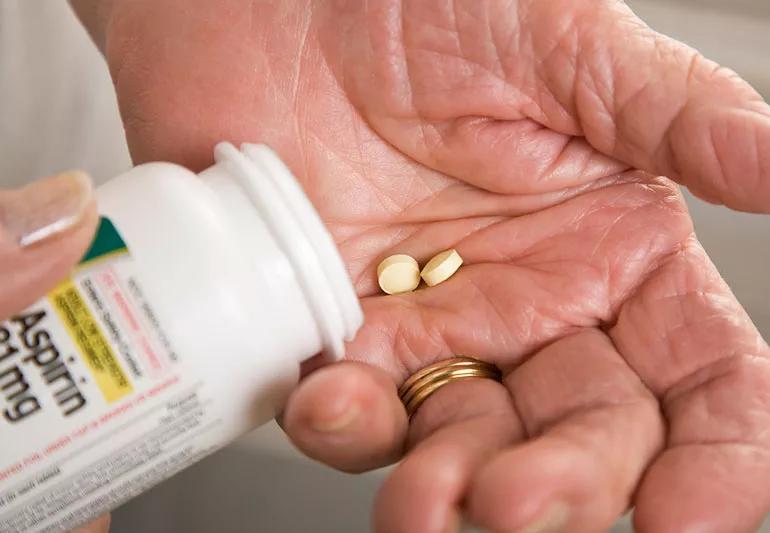The short answer from an interventional cardiologist

Image content: This image is available to view online.
View image online (https://assets.clevelandclinic.org/transform/556af96d-6401-46e5-820d-c3f9a63128ee/aspirinNSAID-157397043-770x553_jpg)
Older woman taking aspirin for pain instead of NSAID
Q: I have osteoarthritis and need to take something for pain relief. How safe are non-steroidal medications for someone who has had a heart attack?
Advertisement
Cleveland Clinic is a non-profit academic medical center. Advertising on our site helps support our mission. We do not endorse non-Cleveland Clinic products or services. Policy
A: In this era of growing concern over opioids, individuals with osteoarthritis (OA) and rheumatoid arthritis (RA) commonly use nonsteroidal anti-inflammatory drugs (NSAIDs) for pain relief.
After the NSAID rofecoxib (Vioxx) was found to increase the risk of heart attack and stroke, adverse cardiovascular (CV) events from other NSAIDs have remained a concern. Clinical studies suggest NSAIDs may, indeed, increase CV events. However, this risk varies and should be assessed relative to the value of pain control.
The PRECISION trial demonstrated that celecoxib (Celebrex®) at recommended doses was not associated with an increased rate of CV events, compared with maximum titrated doses of over-the-counter naproxen (Aleve®) and ibuprofen (Advil®, Motrin®).
A subsequent analysis found that gastrointestinal, kidney and other side effects were 20% more common with naproxen and 38% more common with ibuprofen than celecoxib. NSAID toxicities were not significantly different by age, gender, type of arthritis, tobacco use or history of ulcers, but were higher among patients with diabetes and those who were not taking aspirin.
OA patients appeared to respond equally to all three types of pain relievers, while RA patients responded slightly better to ibuprofen. Although no comparison was made to placebo, the overall message was that all three drugs can help improve quality of life in arthritis patients with reasonable safety.
Advertisement
Starting with a 100- to 200-mg dose of celecoxib may be the safest choice in patients with CV disease. If celecoxib does not produce adequate pain relief, naproxen or ibuprofen should be considered.
Choosing a medication based on your medical history and risk factors, while continuing low-dose aspirin and, possibly, a proton pump inhibitor may minimize your risks when pain control is necessary.
— Interventional cardiologist Leslie Cho, MD
Advertisement

Sign up for our Health Essentials emails for expert guidance on nutrition, fitness, sleep, skin care and more.
Learn more about our editorial process.
Advertisement
The stress of a high-stakes game can trigger a heart attack in people who are at high risk
Inflammation caused by the influenza virus can lead to deadly heart complications
Dramatic chest pain isn't always one of the clues
The warning signs of trouble and how to prevent it
Knowing the difference may not be as easy as you think
Nontraditional markers help doctors pinpoint who needs aggressive treatment
There’s no way to stop it once a heart attack is happening, but the most important thing you can do is to call for help
Your natural estrogen levels support a healthy heart by improving your cholesterol, increasing blood flow and reducing free radicals
Type 2 diabetes isn’t inevitable with these dietary changes
Applying a hot or cold compress can help with pain
Pump up your iron intake with foods like tuna, tofu and turkey